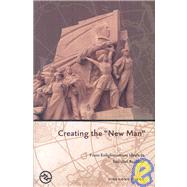CREATING THE "NEW MAN": From Enlightenment Ideals to Socialist Realities
, by Cheng, Yinghong- ISBN: 9780824830748 | 0824830741
- Cover: Hardcover
- Copyright: 12/1/2008
The book¿s fundamental concerns are how these communist revolutions strove to create a new, morally and psychologically superior, human being and how this task paralleled efforts to create a superior society. To these ends, it addresses a number of questions: What are the intellectual roots of the new man concept? How was this idealistic and utopian goal linked to specific political and economic programs? How do the policies of these particular regimes, based as they are on universal communist ideology, reflect national and cultural traditions? Cheng begins by exploring the origins of the idea of human perfectibility during the Enlightenment. His discussion moves to other European intellectual movements, and then to the creation of the Soviet Man, the first communist new man in world history. Subsequent chapters examine China¿s experiment with human nature, starting with the nationalistic debate about a new national character at the turn of the twentieth century; and Cuban perceptions of the new man and his role in propelling the revolution from a nationalist, to a socialist, and finally a communist movement. The last chapter considers the global influence of the Soviet, Chinese, and Cuban experiments. Creating the ¿New Man¿ contributes greatly to our understanding of how three very different countries and their leaders carried out problematic and controversial visions and programs. It will be of special interest to students and scholars of world history and intellectual, social, and revolutionary history, and also development studies and philosophy.






